Monday 3 August The SPLA claimed it has contained the inter-ethnic fighting in Western Equatoria state, creating a buffer zone between youth from Zande communities and armed Dinka cattle herders. The South Sudanese government presented a new diplomatic push towards strengthening its’ bilateral relationship with the government of neighbouring Sudan. In Yambio town, Western Equatoria, hundreds… Read more »
Institutional Characteristics and Regime Survival: Why Are Semi-Democracies Less Durable than Autocracies and Democracies?
In Zaïre (currently DR Congo) in 1991, the country’s personalist ruler Mobutu Sese Seko faced popular unrest, army mutinies, and shrinking resources for patronage. Mobutu was seemingly starting to lose his grip on power, which he had held since the mid-1960s. In response, Mobutu ended the decades-long ban on political parties other than his own Popular Movement of the Revolution, promised free and fair elections, and entered into a coalition government. Yet, a couple of years later ‒ after the situation had “calmed down”, and after having shored up army support ‒ Mobutu reversed the liberalization measures.
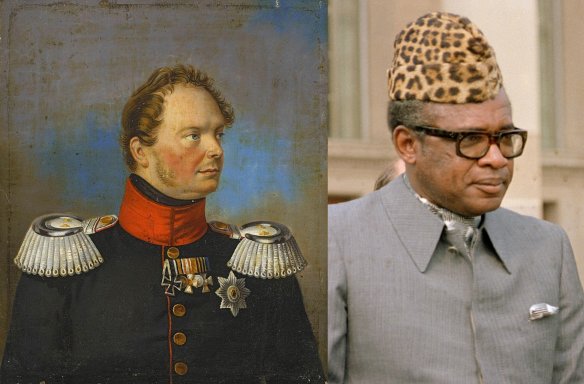
Friedrich Wilhelm IV of Prussia and Mobutu Sese Seko both experimented with semi-democratic regimes.
Almost 150 years earlier, in 1848, several European monarchs from established dynasties also experienced popular pressure for liberalization, following the “February Revolution” in France. The different monarchs and their conservative supporters actually employed quite similar tactics to Mobutu ‒ liberalize when faced with overwhelming opposition and popular unrest, and then retract the concessions when control is regained! As a result, the “semi-democratic” arrangements resulting from Europe’s 1848 springtime uprisings were often reverted by the year’s end, and old authoritarian arrangements reinstated. In Prussia, for example, Friedrich Wilhelm IV faced massive protests and riots in Berlin in March 1848, and caved under pressure to allow the popular election of the first all-Prussian legislative assembly. Within eight months the King regained control with army support, dissolving the national assembly.Read More
Becoming One of Us: The Politics of Citizenship in France, Norway and the UK
Citizenship and naturalization legislation in France, Norway, and the UK has changed substantially more during the 2000s than in previous decades. In which areas of citizenship policy have changes occurred? And how do these changes relate to the trend of reinvigorating the citizenship institution to increase social cohesion?
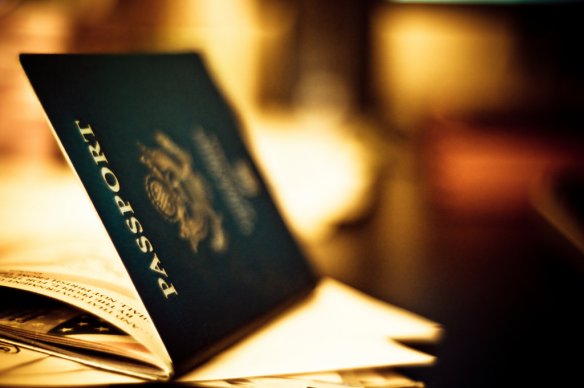
PHOTO: Creative Commons/lucastheexperience on Flickr.com
This blog post is an exerpt from a Policy Brief from the research project ‘Negotiating the nation: Implications of ethnic and religious diversity for national identity’ (NATION).
- Citizenship legislation in France, Norway, and the UK has changed more in the 2000s than previously.
- Countering terrrorism and striving for social cohesion are two clear areas of citizenship policy development.
- The conflation of citizenship, immigration, and terrorism questions in policy creates dillemmas.
- Permitting dual citizenship is increasingly becoming the norm in Europe.
Russia Insists on own Impunity, Gains Pariah Status
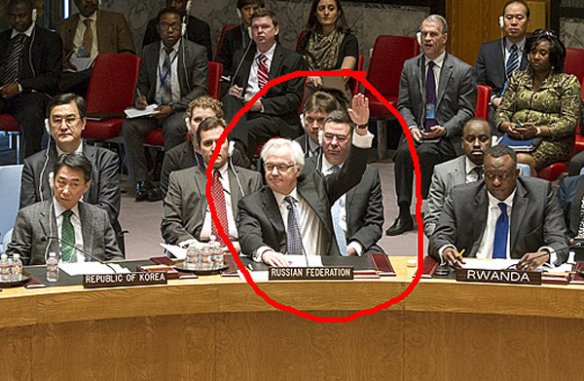
Who is responsible for the MH17 tragedy?
Exactly 40 years ago, the Soviet Union signed the Helsinki Final Act of the Conference on Security and Cooperation in Europe (CSCE), accepting commitments to respect the norms of international behavior and to observe the standards of human rights. The Kremlin had, in fact, no intention to relax domestic pressure on dissidents (who formed the legendary Helsinki group) but saw the document as a matter of pivotal importance to establish the inviolability of European borders. Today, Putin’s Russia is recycling some of the most notorious Soviet methods of suppressing the human rights movement—but at the same time, Moscow also rejects the constraints of international law and violates the borders of its neighbors at its convenience. The Kremlin assumes that Russia’s impunity is guaranteed by the country’s nuclear arsenal, but all these missiles and warheads can do nothing to deter global public opinion, which is increasingly turning against Russia.
The full text of the article is in Eurasia daily Monitor, August 3.
This Week in South Sudan – Week 31 & 30
Monday 27 July President Obama and regional leaders agreed to pressure the two South Sudanese factions to agree to a peace agreement by Aug. 17, and threatened both sides with sanctions or other measures if they do not comply. Tuesday 28 July The think-tank International Crisis Group published a new report on the IGAD peace… Read more »
Impressions from Norway
This is the second of two guest blog posts by students who attended this year’s Peace Research course at the International Summer School 2015.
My visit to Oslo, Norway, to participate in the International Summer School always had an element of pleasant surprise. It was my first time visiting; straight from the end of the Indian summer to the cool comfort of the country of the midnight sun. Awestruck by the abundant nature, a fellow student and I slowly made our way into the Blindern dormitory. It really took a while to settle down. As we missed the registration part, there were a few issues which people over here were more than happy to sort out for us. I was part of the Peace Research course, and a series of stimulating classes started the next day.
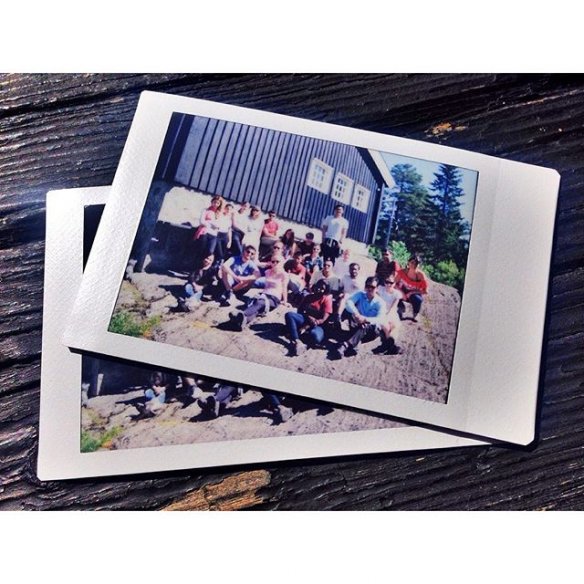
Polaroid pictures from this year’s cabin trip. Photo by summer school student Pedro Henrique Souza.
My Visit to PRIO
This is the first of two guest blog posts by students who attended this years Peace Research course at the International Summer School 2015.
“He reminds me of my grandfather!” The liveliest girl in our class had her back to the wall and was sobbing uncontrollably while PRIO’s old, too tall and too nice head librarian Odvar Leine, unmoved by the commotion in the room, was busy explaining the procedures and collections of his compact yet focused library. The man’s husky English with a sweet Norwegian accent was the thing that not only Jessica but all of us were going to miss profoundly in the coming weeks. Almost all our classes were scheduled at University of Oslo’s (UiO) Blindern Campus and we kept yearning for Odvar and PRIO dearly as the rigor of a world-class course and the attractions of the ‘city between blue and green’ would ultimately allow us to venture only to the UiO libraries.
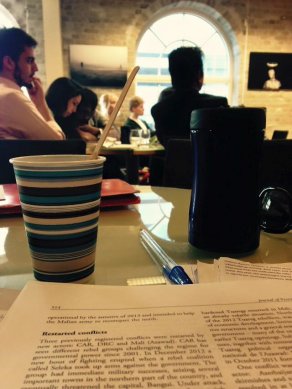
Coffee and Peace Research. The picture is taken during a seminar in PRIO’s Philosopher’s Hall. PHOTO: Jelena Milenkovic.
The Peace Research Institute Oslo has a ‘War Room’ too, our course coordinator Anne Duquenne had smilingly informed us while she ushered us towards the roof. Indeed, there was food for thought. The war-cry that instantly caught my eye was: “Thinking requires leisure time”, with a short note appended: “and good food”. The large group of Asians in this batch of twenty international scholars couldn’t agree more as ‘good food’ was exactly the thing they were missing the most at Blindern Dormitory; hence they were unable to do much serious thinking about war and peace.Read More
Arctic fishing and Russian Maritime Doctrine
Many Arctic watchers were glad to hear about the agreement on prohibiting fishing in the newly-opening waters around the North Pole, signed a couple of weeks ago in Oslo by Canada, Denmark, Norway, Russia and the USA. Indeed, it was a significant step in protecting migrating fish stocks – but Iceland declared strong reservations. It… Read more »
Contestations over National Identity and Diversity: An analysis of French and British media debates in the autumn 2014
How and when is national identity and nationhood debated, and what does this reveal about the boundaries of national identity? Drawing on analyses of opinion pieces from French and British newspapers, we examine how national identity is debated, contested and challenged in light of national and international news events during the autumn of 2014. This blog post is based on a Policy Brief from the research project ‘Negotiating the nation: Implications of ethnic and religious diversity for national identity’ (NATION).

PHOTO: Creative Commons/Jon S on Flickr
- National identity is an embedded theme in public debates, spurred by events and societal change, but also often abstract and removed from everyday life.
- Three areas of debate with conflicts over the boundaries of national identity emerge: Immigration and ethnic diversity; terrorism and religious diversity; state independence and union.
- In discussions on immigration and ethnic diversity, opinions are often justified through expressions of and references to ‘national’ values.
- Religious diversity is contested in relation to ‘Muslim’ terrorism and radicalisation, but also to notions of ‘Christian’ values in the secular state.
Mediations of national identity
Recent acts of terrorism have fuelled longstanding French and British debates on nationhood: who is French or British, and who is not. Events that induce fear, such as terrorism, crises and other disruptive events, often provoke public debate, change public opinion and alter traditional categories. In this Policy Brief we examine when questions about national identity appear in public debates and how national identity is contested. By analysing French and British media debates from the autumn of 2014, this study provides a snapshot of ongoing debates on national identity in France and the United Kingdom.
Read more in a recent PRIO Policy Brief ‘Contestations over National Identity and Diversity’.
How Long can Putin Continue doing Nothing?
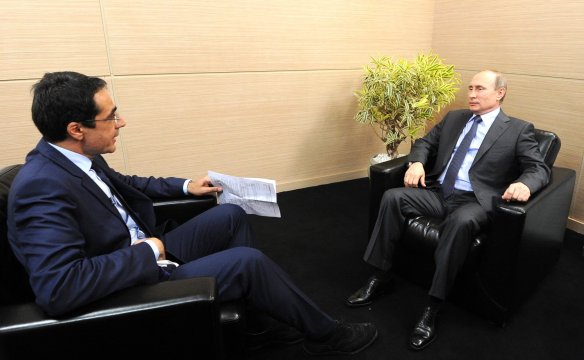
The Swiss media surprised Putin with a question: What can you say to people who think you are nuts?
Putin has always preferred to postpone decisions until the last possible moment and to keep his lieutenants and international counterparts in the dark about his intentions. This summer, however, he is arguably wasting time and maneuvering himself into a corner, from which the only escape will be jumping into another spasm of hostilities in eastern Ukraine with the hope that a victory can cancel all other problems. The risks are frighteningly high, and Putin has avoided them for yet another week. But now August is approaching—a month that has traditionally brought Russia multiple disasters.
For the whole article, see Eurasia Daily Monitor, July 27.